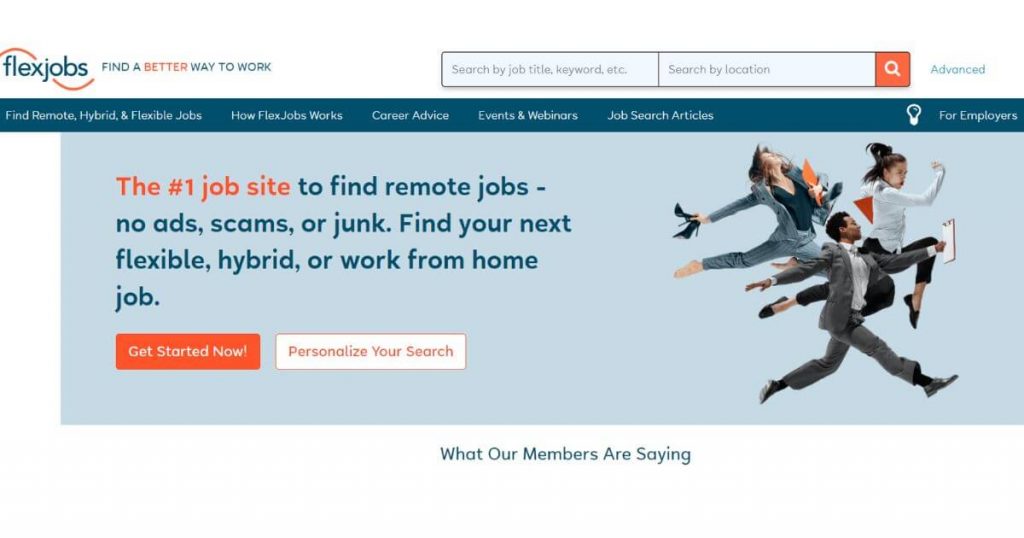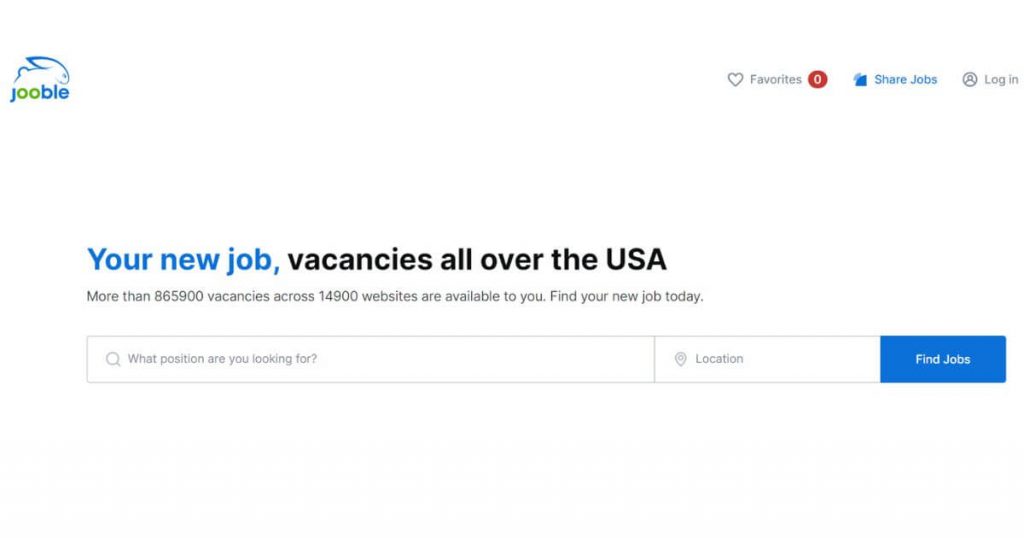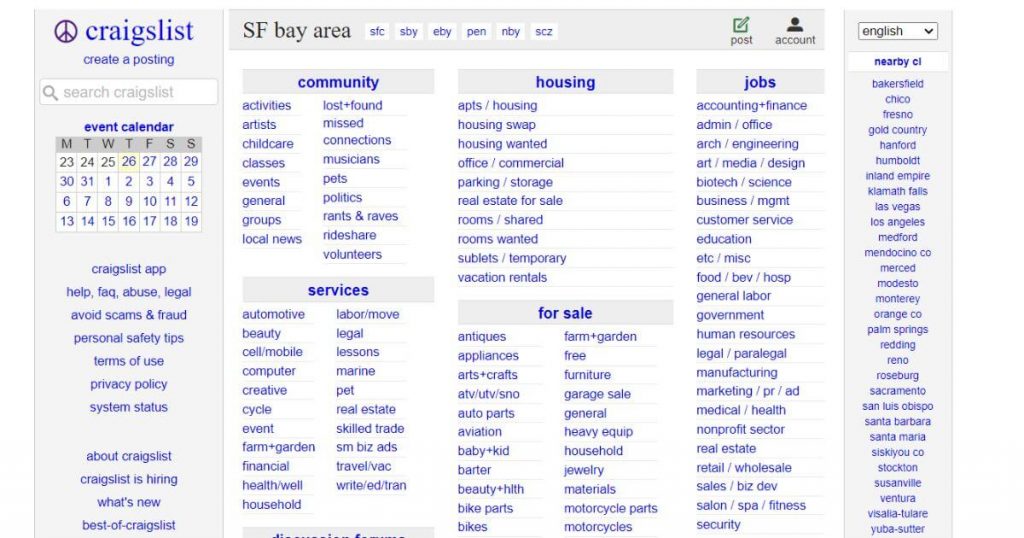Playback speed:
Blogging jobs are more versatile, lucrative and fulfilling than you might think.
Not only is blogging a fantastic way to monetize your website and generate leads for a product or service, but it’s also a great way to earn money as a promotional expert. You can sell your blog writing skills to companies all over the globe, to help them build their online presence, improve their position within search engines, and strengthen relationships with prospects.
In fact, around 86% of companies say they prefer using blog posts to other forms of content marketing. Additionally, over half of all the top Fortune 500 companies have their own blogs.
Bloggers can operate full-time or part-time, depending on their preferences, work from home or in-house, and explore a wide selection of different niches and verticals. However, before you can start making money as a blogger effectively, you need a strategy.
Here, we’re going to explore the steps involved in developing a career as a blogger, take a look at how much you can expect to earn in this field, and even offer a few insights into where to get started on your new journey.
How Do You Become a Blog Writer?
One of the reasons why blogging jobs are so popular is that it’s relatively easy to get started. You don’t necessarily need a specific degree to pursue this career path, although it helps to have an education in writing, SEO, and content marketing.
Additionally, freelance writers can create blogs for any industry, which means you’re free to pursue a career that specifically appeals to your interests and passions. However, while the barrier to entry for blogging is low, it still takes work to build a successful and lucrative career.
You’ll need to consistently focus on developing your skills, deepening your understanding of your audience, and seeking out new clients and opportunities. Here are some of the steps involved in finding blogging jobs for the first time.
Step 1: Look for Sources of Paid Blogging Work
Perhaps one of the first things you’ll need to do as a blog writer is determine where you’re going to seek out clients and job opportunities. There are a few ways to make an income as a blogger. You can create your own blog and monetize your content with affiliate marketing, subscriptions, e-commerce stores, and services. Or you can write for other companies.
If you want to write for other brands, there are plenty of easy ways to get started. For instance, you can reach out directly to companies you’re interested in working for, by sending emails to their editors and marketing teams. You may even be able to find blogging job posts on regular recruitment sites, listed under marketing and “content marketing”.
Other potential sources of blogging work include:
- Freelance marketplaces: Freelance marketplaces are one of the best places for finding blogging work. There are countless options to choose from, including FlexJobs, Fiverr, PeoplePerHour, and UpWork. Just keep in mind, the competition on these sites is often quite high, and the price you’re paid for your work can vary.
- Dedicated blogger sites: Dedicated sites specifically designed for bloggers are particularly useful if you want to find writing jobs quickly. There are options like BloggingPro and ProBlogger, which allow you to access hundreds of listings from clients every day.
- Content marketing agencies: You can also choose to apply for a position with a content marketing agency. Marketing companies like ClearVoice and Contently regularly search for new bloggers to join their ranks. However, you will need to demonstrate your skills if you want to stand a good chance of being hired.
Step 2: Find your Niche
Once you know where to search for blogging jobs, it’s worth getting a clear idea of what kind of positions you want to apply for. For beginner bloggers, it’s often tempting to take a broad approach to seeking out work. If you’re willing to research and write about anything, you can pitch your services to a huge range of different companies.
However, focusing on a specific niche will help you to build your expertise in a certain area, and demonstrate specific skills to future clients. You may be able to charge higher rates for blog posts if you’re a specialist in a specific niche.
When choosing your niche, it’s worth focusing on two things. First, you need to think about what you’re interested in or passionate about. It’s much easier to write about things that genuinely capture your interest, and you’ll find you have more fun in your career this way too. Secondly, it’s worth looking for a lucrative niche. Focus on areas that have a genuine need for bloggers, like lifestyle, health, marketing, and technology.
Step 3: Learn How to Find Content Topics
With your niche in mind, you’ll need to start thinking about how you’re going to create a constant stream of content for your clients. Blogging is a long-term strategy for business growth, which requires professionals to constantly produce and promote fresh content.
The good news is that there are various ways you can find ideas for your blog posts. You might start by plugging a few words into Google and seeing what comes up both in the search engines and the “People Also Ask” section. You can also research topics by looking at sites like Google Trends, BuzzSumo, and Answer The Public.
If you’re working with a specific client, you can also ask for their input into your blogging topics. Ask them what kind of questions their customers usually have about their products and services. Building blog posts specifically tailored to address the needs of an audience throughout the buying cycle can be very lucrative. The more you know about your target audience’s needs and pain points, the more you’ll be able to create valuable, relevant blogs.
Step 4: Start Writing Compelling Blog Posts
Once you’re ready to dive into your content creation role, it’s time to begin producing amazing content. The more practice you can get here, the better. You may even want to consider creating your own blog, so you can practice publishing engaging content more frequently.
No matter which niche you choose, or who you decide to work for, you should always be focused on creating blogs that are valuable and engaging. The most effective posts need to appeal to your target audience, answer their specific questions, and deliver useful information.
When producing your content, always keep the intent of your audience in mind, and ask your clients for feedback on how your posts perform. You can also consistently improve your writing by taking courses online related to content creation, search engine optimization, and marketing.
Reading other high-ranking blogs in your niche can also be helpful, as it will give you an idea of what kind of information you need to include in your own posts.
How Much Do Blogging Jobs Pay?
If you’re thinking of seeking out blogging jobs to replace your standard income, you’ll need to know how much you can expect to earn, and whether you can reasonably pay your bills as a blogger.
The good news is that blogging jobs can be extremely lucrative. The bad news is that it’s difficult to determine exactly how much you’re going to earn in this field. The money you make as a blogger will depend on everything from your clients to the impact your blogs have on your target audience. Professionals with more experience tend to earn a lot more than beginners too.
According to Indeed, the average blogger earns around $19.38 per hour in the United States. Alternatively, Salary.com suggests bloggers can make anywhere between $40,231 and $52,378 per year, depending on their career strategy.
If you build an identity as a thought leader in your space, and become a freelance blogger, you should be able to essentially set your own rates. However, you’ll need to make sure the price you’re charging each client is competitive and suitable for your needs. Make sure you’re considering the amount of time you dedicate to each blog post and the resources you’ll need to use, such as software, electricity, and even hardware (Computers, keyboards, etc).
How to Get Paid to Blog in 2024?
We established that you can absolutely make a living with blogging. Let’s check out the best ways you can get paid as a blogger if you’re looking for work.
Firstly, starting your own blog is the best way to have full creative control over your content and gain income through:
- Affiliate marketing: This is one of the main ways to make money online with your blog content. Promote products or services related to your niche and earn commissions on sales.
- Selling digital products: Many bloggers create and sell ebooks, online courses, or exclusive content to their audience.
- Display ads: You can use platforms like Google AdSense to display ads on your blog and earn money based on clicks and impressions.
In case you don’t want to edit or manage your own publication, you can land paid blogging gigs for things such as:
- Sponsored posts: Partner with brands to showcase their products or services. Copywriting and editing informative in-depth reviews is a great way to create valuable relationships with both your readers and businesses.
- Guest blogging: Guest post articles and collaborate with other blogs or websites to earn a small fee for your work. Suggest article topics and slowly build a portfolio of published content to further expand your resume and authority as an experienced writer.
In all cases, networking, maintaining consistency, and producing high-quality content are essential for long-term success if you’re looking to get paid for blogging. Whether you choose to create your blog or write for others, these strategies offer rewarding opportunities in 2024.
10 of the Best Blogging Job Sites in 2024
As mentioned above, one of the most important steps in starting a career as a blogger is figuring out where you can find lucrative blogging jobs. There are quite a few options out there, and it’s well worth signing up to several different sites, so you can potentially apply for a wide variety of jobs that can be done.
Here are some of the most effective sites for finding flexible blogging jobs that pay well.
1. Contena

Contena is a well-known website focused specifically on connecting brands with professional bloggers. You can search for writing jobs tailored to your niche, whether you’re interested in health, lifestyle, food, finance, technology, or beauty. What’s more, the website’s homepage is consistently updated with new blogging positions.
The biggest downside of Contena is that if you want to gain access and start applying for jobs, you need to be a member of the platform. You have to sign up with your email address, and you’ll be placed on a waiting list before you can jump in. There’s also a membership fee of $497 for content writers, which includes access to a leading writing course.
2. ProBlogger

One of the most popular and well-known options for blog creators, ProBlogger was founded by a leading content marketing expert named Darren Rowse. The ProBlogger site is a fantastic resource for finding courses, eBooks, and other content to help you develop your career.
There’s also a dedicated job board on ProBlogger, where clients can list their available positions for a one-time fee. This board is brimming with short and long-term blogging opportunities, and there are usually hundreds of jobs on offer at any given time. Each job description includes details on the blog niche, target audience, and the requirements of the job. It’s even possible to filter job options and focus on jobs for specific locations or niches.
3. Be a Freelance Blogger

Otherwise known as “BAFB”, Be a Freelance Blogger is one of the top sites any professional blogger should keep an eye on a regular basis. If you’re looking for a range of paid blogging gigs, relevant to your industry and interests, then this is the site for you. The website also includes access to a range of books, courses, and training options, so you can expand your content writing knowledge.
The site’s owner, Sophie, doesn’t tolerate any jobs that underpay writers, so you know you’re going to be paid a decent wage for your efforts. Most jobs on the site pay at least $0.10 per word, and they need to offer at least $50 per article. Each job listing comes with a transparent description, so you can determine what kind of roles are best suited to you. Plus, you’ll know exactly what your rates are going to be in advance.
4. FlexJobs

A prevalent freelance marketplace for those in search of one-off gigs and long-term remote work, FlexJobs has emerged as a valuable resource in recent years. It’s considered one of the top job sites for finding remote working opportunities. What’s more, it lists hundreds of different types of jobs, connected not just to blogging, but also graphic design, video creation, and more.
This flexible job site allows you to tailor the results of your job search, by choosing to specifically track down relevant blogging careers. There’s also a great resource center, where you can boost your chances of developing your career by enhancing your writing skills.
5. Jooble

Although Jooble hasn’t been around for quite as long as some of the other sites on this list for finding blogging jobs, it has a great reputation. Many of the positions listed on the site pay writers high wages, so you can rest assured you’ll be earning a good salary. Plus, you can search for potential jobs using keywords, so it’s easy to target opportunities relevant to your niche.
The Jooble job board also has a Chrome extension, so you can start looking for a new position just by clicking on a button in your browser. Job listings on the Jooble website provide plenty of insights into what you’ll be doing, and even where the business is located. You can also filter through jobs based on how much they pay, and how much experience is required.
6. Craigslist

Craigslist might not seem like the go-to place to search for blogging and freelance writing jobs, but it can be a phenomenal resource for content creators. Contrary to popular belief, Craigslist isn’t just a place where people sell the belongings they no longer want. It’s also a diverse job board, where countless companies search for new staff members.
Using the powerful functionality built into the site, users can search for relevant blogging jobs and filter through thousands of listings. You can even narrow your search down to only the kind of blogging jobs you’re looking for. The only downside with Craigslist is that many of the jobs posted on the site haven’t been pre-vetted or verified. You’ll need to be careful to ensure you’re working with a reputable client. Collect payment before submitting your work.
7. Media Bistro

If you’re serious about earning a good living as a blogger, then it’s definitely worth checking out the options on Media Bistro regularly. This trusted job board is where many of the world’s biggest brands post their job listings when searching for creative professionals and content marketers. You’ll be able to find part-time and one-off jobs here, as well as long-term opportunities for work.
Media Bistro allows you to search through available jobs with filters that include everything from when the job was posted, to the duration of the hire and even the level of skill required. You can also see “featured” jobs from well-known brands listed on the company’s main job page.
8. Direct Response Jobs

Direct Response Jobs is one of the most popular and well-known job sites for professional bloggers and content creators. The site isn’t just an effective place to search for employment opportunities; it’s also a great place to expand your knowledge about blogging. You’ll find a range of resources to help you grow, as well as specific coaching and training programs.
Direct Response Jobs can often feature job opportunities you wouldn’t be able to find elsewhere, from market-leading brands and businesses. However, you will need to pay to become an AWAI member if you want to see the latest jobs as soon as they’re listed. Non-members can still see job listings, but they may be a few days old before you can apply for them.
9. Your Morning Coffee Newsletter

The “Your Morning Coffee” Newsletter is a great tool for blogging professionals who want to cut down on the time they spend searching for new opportunities each morning. When you sign up for the newsletter, you’ll receive access to a host of new job alerts every morning, delivered straight to your inbox. This way, you can sort through a range of positions in no time.
The jobs listed feature opportunities from leading sites like FreelanceWriting.com, as well as Indeed, ProBlogger, Craigslist, and others. The company even delivers a weekly digest, where you’ll see 8 of the best, highest-paying, and most lucrative job opportunities for writers, pre-selected for you.
10. HubStaff Talent

Finally, the HubStaff talent website is a fantastic free marketplace, where freelancers can directly connect with clients in search of their services. The HubStaff team only posts verified blogging jobs available on their platform, so you won’t have to worry as much about doing your due diligence to ensure you get paid. You can also sign up for a weekly email with jobs specific to your profile.
You can tell HubStaff what kind of roles you’re looking for (full-time or part-time), as well as what skills you have, and what niches you’re interested in. You’re even able to narrow down your job options by focusing on positions with a specific pay rate. The only downside is that you’ll only be able to communicate with clients through the HubStaff site.
The Pros and Cons of Blogging for Someone Else
As mentioned above, there are a number of ways to make money through blogging. You can easily build an amazing income by creating your own blog and producing content you monetize yourself. However, blogging for another company can be an effective option too.
Here are the pros and cons you should consider if you’re thinking of hiring your services out to other clients, rather than producing your own blog.
Pros:
- Simplicity: When you’re blogging for someone else, you don’t have to worry about actually running your own business and making sure your website grows. You probably won’t need any of the technical knowledge required to run a website either.
- Versatility: You can apply for a range of different types of jobs and explore different niches, without having to create a multitude of different websites. This can be a great way to expand your knowledge and enjoy a more interesting workflow.
- Consistency: When you run and monetize your own blog, your income can be relatively inconsistent. When you work for other clients, you know exactly how much you’re going to earn per word, so you can budget a little better.
Cons:
- Finding clients: As a blogger working for other companies, there’s no guarantee the same brand will keep you on forever. This means you need to consistently seek out new clients and different sources of income.
- Stress: Working for other people can be stressful. You need to adhere to their requirements and follow their guidelines for blogging, even if you don’t agree with their strategies. You also need to show consistent results.
- Learning: You’ll need to commit to constantly improving your writing skills, while also learning about the different target audiences and the goals and preferences of the companies you’re going to be writing for.
Find Your Own Freelance Writing Jobs Today
Ultimately, blogging jobs can be an ideal way to make an income if you’re interested in writing and promotion. There are tons of ways to get started and the barrier to entry is often relatively low. In fact, applying for jobs in the blogging market is very similar to applying for just about any other freelance job. However, you need to be persistent, patient, and dedicated if you want to earn a competitive income.



